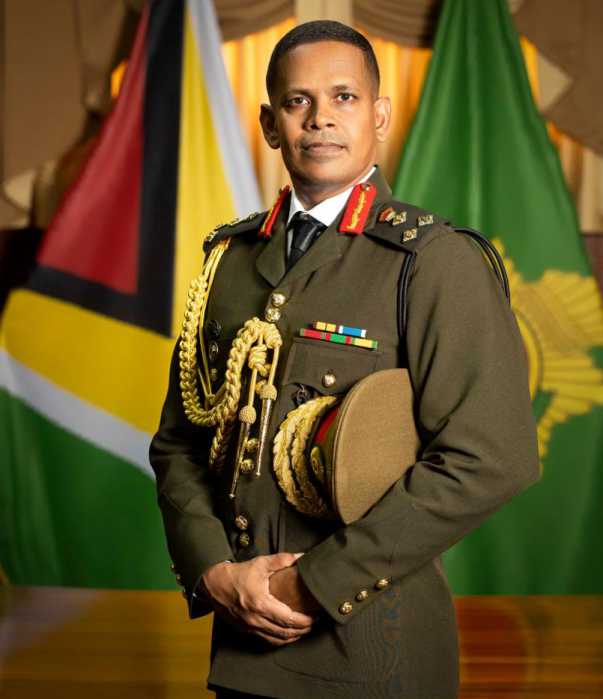A leading Washington-based think tank says that Guyana’s President Bharrat Jagdeo will leave a “tattered legacy” after not seeking a third term in August’s presidential elections.
“Stagnation, violence, corruption, arch-sectarianism, and unfettered crime – this is the heritage that President Bharrat Jagdeo will bequeath to his country,” said The Council on Hemispheric Affairs (COHA) in a statement.
“Now that Jagdeo has announced that he will not seek a third term in the upcoming August election, he may well ask, as a New York mayor once did, ‘How did I do?’ The answer, in this instance, must be: ‘terribly,” it added.
Chosen by former President Janet Jagan to succeed her in office, and supposedly held in high esteem by Guyana’s founding father, the illustrious Cheddi Jagan, COHA said Jagdeo could only receive the lowest of marks from any independent evaluation.
“Through his tolerance of crime, racism, and dismal social progress, President Jagdeo has turned in a fifth-rate performance as president of one of the poorest countries in the hemisphere,” it said.
“As the Guyanese use every strategy, legal and illegal, to flee the dysfunctional country, Jagdeo will go down in history as a man who did almost nothing for his nation while in office,” it added.
But COHA noted that, to his credit, Jagdeo has led Guyana on a path of “considerable economic growth” in the last 10 years, despite a devastating flood in 2005.
It said the Guyanese economy, which is heavily dependent on the export of six main commodities—rice, timber, gold, bauxite, shrimp and sugar—has expanded at an average rate of 3 percent over the past decade.
“Sadly, however, despite this incremental improvement in the Guyanese economy, government officials have been either unwilling or unable to share this modest prosperity with average Guyanese citizens,” COHA said.
Indicative of this trend is the fact that the allocation for education as a percentage of government spending is significantly lower than it was 10 years ago, it said.
COHA said public spending on education dropped to 6.1 percent of total Gross Domestic Product (GDP) in 2007, down from 8.5 percent in 2000.
Because of this “lack of adequate spending on public education,” the influential think tank said the percentage of primary school entrance-age children enrolled in such schools dropped from 91.8 percent to 62.0 percent.
While it is difficult to speculate precisely what effect these substantive budget cuts on education have had on childhood literacy rates in the country, owing to a lack of data collected by Georgetown officials, COHA warned that there could be “pernicious social consequences if education continues to take a back seat on the Guyanese agenda.”
On healthcare, it said there have been “some positive results” including an increase in life expectancy and a notable decrease in infant mortality.
But it said “many exigencies, however, remain unaffected, stating, for example, that about a fifth of the Guyanese population still lacks access to clean sanitation facilities. The World Health Organization estimated that Guyana has one of the highest prevalence rates of HIV/AIDS in Latin America and the Caribbean.
COHA said Jagdeo’s tenure will also be remembered for the “spike in violent crimes experienced throughout Guyana.”
“The violence in Guyana is all the bitterer for the ethnic undertones that color it. Guyana’s motto—‘One People, One Nation, One Destiny,’—only seems a cruel joke in the face of the stark division that has long seized the country—a division that Jagdeo has done almost nothing to address,” it said.
On balance, COHA said Jagdeo has “failed during his presidency to advance the freedom and fairness of Guyanese public life, or the inequities of the Indo-Guyanese-dominated society.”
“Increased economic growth is futile if it does not translate into a greater sense of prosperity within the entirety of society. Jagdeo’s two-term presidency fell woefully short on that point,” it said.
“Social needs remain unmet due to inadequate spending on education and a lack of efforts to improve the quality of healthcare,” it added.
“Furthermore, the perpetual presence of criminal and ethnic violence threatens the fabric of Guyanese society, and, if anything, has been aggravated by the indiscriminate violence of public security forces in response,” COHA continued.
It said whoever inherits Jagdeo’s position must work to tackle “these persistent issues, and to clear the air of hopelessness when it comes to improving life in one of the hemisphere’s poorest and most forlorn countries.”


























